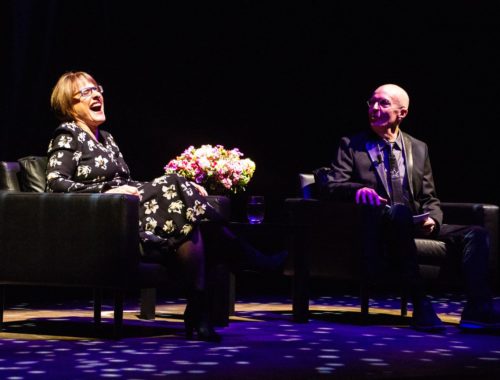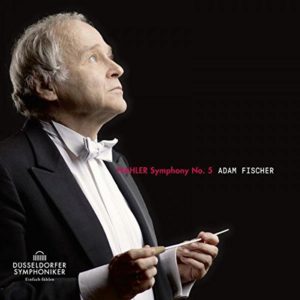GRAMOPHONE Review: The Last Concert – Claudio Abbado/Berlin Philharmonic
 Claudio Abbado stepped down from his post as Chief Conductor of the Berlin Philharmonic Orchestra in May 2002 on the stage of the Musikverein, Vienna. 4000 roses rained down on his departure. Just over a decade later he was back at the helm of the orchestra presiding over his very last concert with them, this time on home turf in Berlin. This is that concert. A typical Abbado programme twinning two musical alchemists as dazzling in their technique as they were jaw-dropping in their imaginations.
Claudio Abbado stepped down from his post as Chief Conductor of the Berlin Philharmonic Orchestra in May 2002 on the stage of the Musikverein, Vienna. 4000 roses rained down on his departure. Just over a decade later he was back at the helm of the orchestra presiding over his very last concert with them, this time on home turf in Berlin. This is that concert. A typical Abbado programme twinning two musical alchemists as dazzling in their technique as they were jaw-dropping in their imaginations.
Mendelssohn was something of a port bonheur for Abbado throughout his career and it is self-evident from this his final reading of the precociously brilliant Overture from the Incidental Music to A Midsummer Night’s Dream that it had lost none of its fascination and magic for him. Just the way he illuminates the harmonic ambiguity, the oblique dissonance, of those static woodwind chords of the introduction – knowing full well that there is mischief in the spell they cast.
The legendary Abbado transparency is evident throughout this account – a textural refinement that steers clear of preciousness and never draws attention to itself. What needs to be heard is heard. Fairies and mechanicals rub shoulders in rhythms as deftly pointed (the Scherzo) as they can be coarse and club-footed (Bottom’s music in the Overture). The dreamy solo horn of the Nocturne is the more atmospheric for its simplicity.
It surprises me that Abbado had never performed the Berlioz Symphonie Fantastique with the Berlin Philharmonic until this concert. It was, of course, a Karajan staple, a showy crowd-pleaser when he took the orchestra on the road. High levels of refinement were common to both. But Abbado’s inherent good taste is apt to take precedent over Berlioz’s somewhat hallucinatory characterisation and where you might want the trumpets to shine through a little more coarsely at the delirious climax of the opening movement (it is marked Reveries – Passions after all) or the plushy Waltz to enjoy its opulence a little more, Abbado’s nose for atmosphere can take us deeper into the composer’s imagination than many of his peers.
The highlight of this performance for me is the movement I so often drift off in – the Scene aux champs. Abbado could, better than most, find those elusive spaces between the notes and what he does here is to conjure the concentration and distillation of nature transcendent. His own spirituality somehow plays right into the fabric of the music.
On the debit side, the gruesome showstoppers – “March to the Scaffold” and “Witches Sabbath” – don’t hit the high-end of the Richter Scale for excitement. This may be an engineering issue but I want more “definition” (certainly sharper brass) from both, I want the “special effects” (grisly and comical) in higher relief rhythmically and texturally. The March is on the sluggish side, definitely wanting in cut and thrust, while all the grotesqueries of the finale (the glissandi, rollocking bassoons and trombones, skeletal con legno,) though keenly heard, don’t leap from the page in a way that is properly grotesque. Doubtless Abbado hated the “v” word (vulgarity) but there’s kind of a place for it here.
Of course, there are historical reasons for wanting this final performance released for all to hear and keep. But, that Scene aux champs apart, it doesn’t quite represent Abbado as we would hope to remember him – a conductor blessed with better instincts, better taste, better ears, and more soul than most before or since. His recorded legacy contains many finer examples of his special talent.
You May Also Like

GRAMOPHONE: From Where I Sit – November 2020
09/12/2020
COMPARING NOTES with ALFIE FRIEDMAN
05/01/2023

